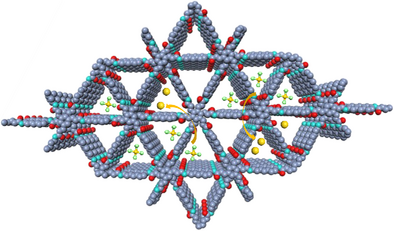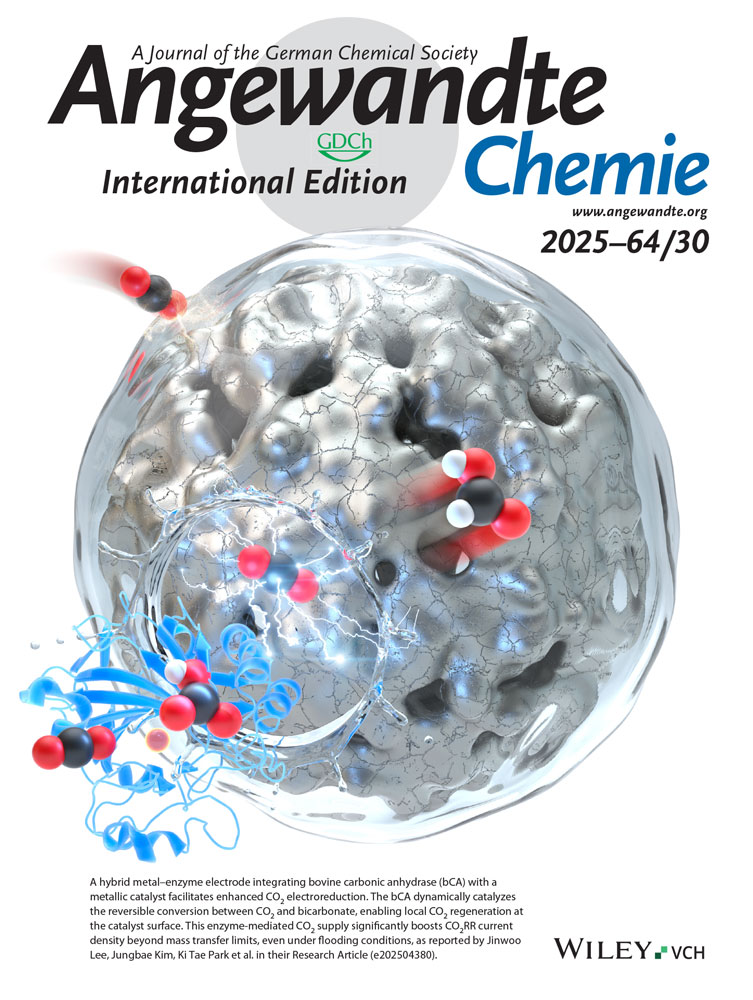Stable Acrylamide-Linked Covalent Organic Frameworks via Mannich Polymerization for Efficient Gold Recovery from Complex E-Waste Leachates
Graphical Abstract
Acrylamide-linked covalent organic frameworks (COFs) were synthesized through a one-step Mannich-type three-component polymerization. The resulting frameworks feature irreversible linkages, extended π-conjugation, and dual C═O/N─H coordination sites, enabling exceptional stability and highly selective gold recovery from complex electronic waste leachates.
Abstract
Achieving both high stability and selectivity remains a critical challenge in covalent organic frameworks (COFs) for efficient gold recovery. Herein, we present a one-step Mannich-type three-component polymerization involving 1,3,5-triformylbenzene, Meldrum's acid, and aromatic diamines to construct a series of acrylamide-linked COFs (TFB-PD-M, TFB-ND-M, and TFB-AD-M). The incorporation of acrylamide linkages enhances π-conjugation and backbone rigidity, thereby yielding COFs with high crystallinity, permanent porosity, and exceptional chemical and thermal stability under extreme conditions. Importantly, the dual coordination sites (C═O and N─H) within the acrylamide units enable robust and selective Au3+ binding through synergistic hydrogen bonding and chelation. Notably, TFB-AD-M achieves 98.5% selective Au3+ recovery from complex electronic waste leachates, even in the presence of competing metal ions. This work introduces a robust linkage strategy that not only improves COF stability but also facilitates selective metal capture for resource recovery.
Conflict of Interests
The authors declare no conflict of interest.
Open Research
Data Availability Statement
The data that support the findings of this study are available in the Supporting Information of this article.





